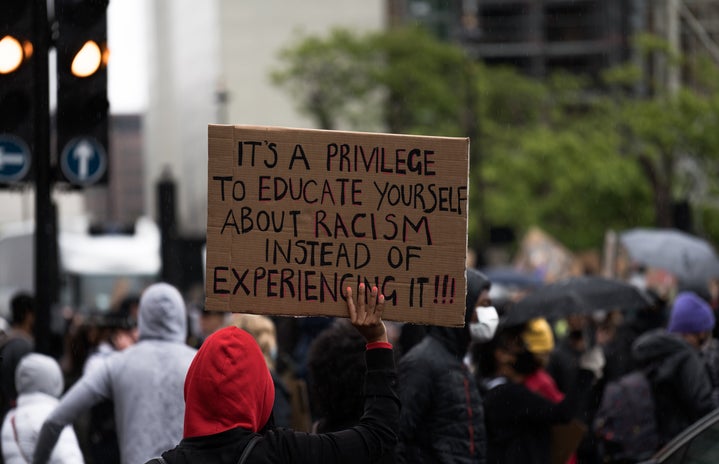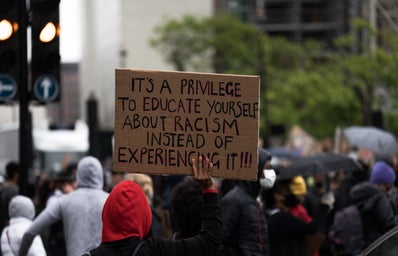After recent rhetoric that challenged the purpose of diversity training, Smith College announced a renewed commitment to BIPOC community members. However, racially hostile sentiments remain alive in the Smith community.
Rhetoric like this is ignorant, disturbing, and in places downright cruel to students of color. But unfortunately, it’s real. And as a predominantly white institution (PWI), Smith likely harbors more students than we think who can’t comprehend the need for bias training, who don’t want to talk about structural oppression, and who feel mistreated for being told they need to confront their internalized racism. To be clear, I am not one of these people, and I don’t endorse their points of view. But through their developed race-blindness and the media they consume, they can come to feel like this mindset is justified.
People who feel this way come from environments that are also predominantly white, and have never been asked to investigate the privilege that their race has allotted them. When they are told that they need to understand the racial hierarchies society has been built around, they get offended, and say things like what the videos say: that they feel their whiteness is being seen as more important than the rest of their being.
The thing is, people of color are always treated as if their race is more important than the rest of their being; in housing, in education, and in most other aspects of their lives. They are always subject to race-based “harassment, discrimination, and hostility”. And that’s just the tiniest fraction of a structure of racism that has taken hundreds of years to build. The inability of privileged people to see any of this, to comprehend any of their privileges, is directly harmful to people of color. Denying any race-based difference between people is a direct erasure of the unique experiences and needs of BIPOC. An employee whose sole job is to support the needs of students should know that. A student who wants to be able to form an effective relationship should know that. A community that is truly committed to diversity and racial justice should know that, and the fact that they wouldn’t is dangerous. Therefore, the strength of the opposition to anti-bias training is a perfect example of not only why Smith College had the right idea in implementing it in the first place, but of why this training needs to go further.
In this segment of my article, I would like to note that I am a white woman. Like many Smith students, I came from an extremely white, very privileged area. I have gotten to learn a lot about structural racism and my own privilege over the years, and my education at Smith is helping me learn even more. And while I may not be completely qualified to orchestrate a response to recent privilege-blind members of Smith, I have some general ideas as to how the college could proceed.
In recent days, the Smith College Student Government Association has begun considering the idea of a required class on race. Though not much is known about this hypothetical class, it presumably would help students understand the concept of racism, as well as the way it acts on their lives. Educating the wider community on racism seems like an excellent idea. My hope would be that any class meant to discuss race would explain how racial privileges and prejudice operate both fundamentally and in everyday life.
But what should be done to address those perpetuating many of these hostile sentiments?
While everyone is completely within their legal rights to express their opinions, there is no denying the impact that these words have had on the atmosphere within the Smith community. Many of the recent arguments made against anti-bias training have fuelled an all-too-common divisiness between the students of color who experience real discrimination and those privileged enough to refuse to acknowledge it.
Other students have expressed similar sentiments, and these are absolutely fair. Just as these people are entitled to her freedom of expression, we are entitled to ours. But someone who perpetuates harmful ideologies should be mindful of the pain their rhetoric causes to those who have all too often have had to struggle under a system that turns a blind eye to real, systemic discrimination in favor of those who jump to claim oppression at the first sign of any minor inconvenience.


